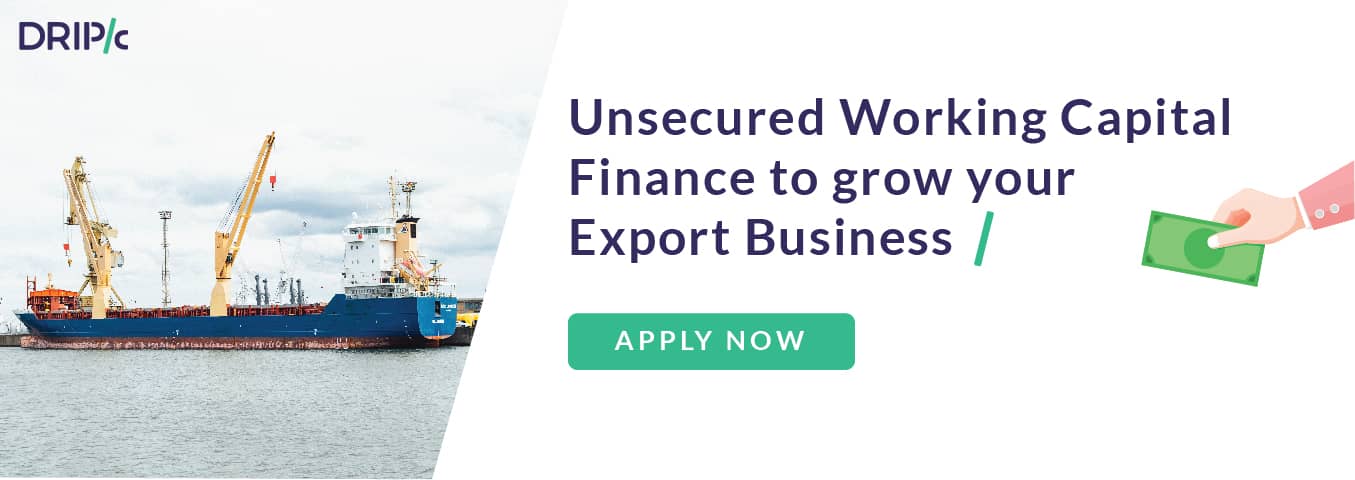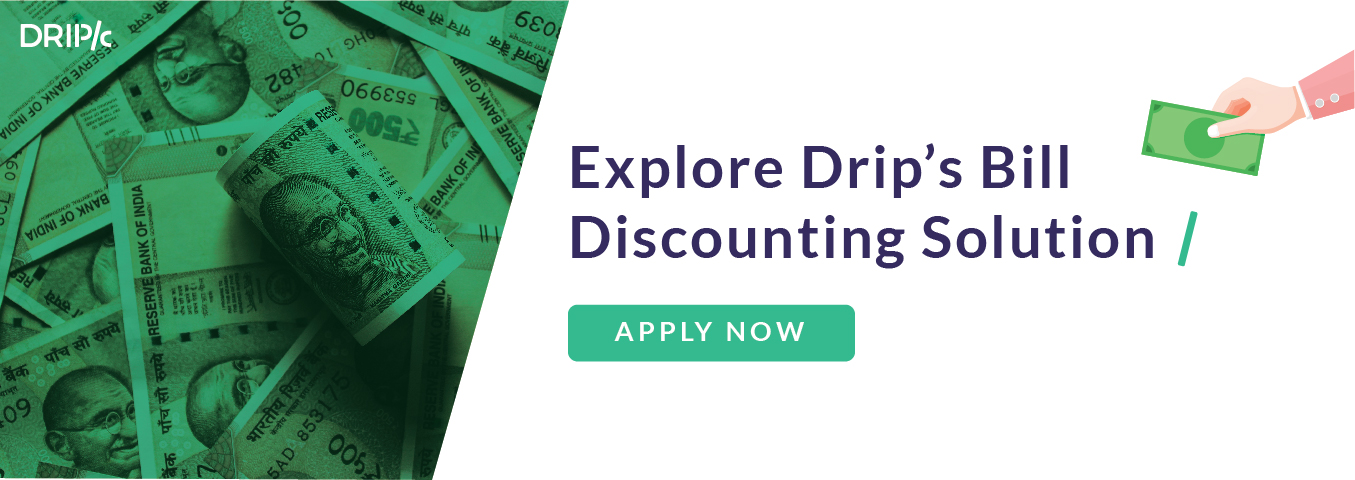DDP Incoterm is one of the 11 trade terms in the incoterms series, published by the International Chamber of Commerce (ICC). It stands for Delivery Duty Paid, a terminology which can be used for any mode of transportation. Also, it lays maximum risk and responsibilities on the seller.
As per the shipping terms under DDP, the seller bears all costs & risks involved in delivering the goods to the nominated place. It is also the only term where the seller is liable for import custom payments.
A DDP arrangement favours the buyer, since the seller handles most of the responsibilities. But if the buyer stays aware and tries not to depend entirely on the seller for certain costs that he/she may be better equipped to handle it.
The place of delivery/place of destination plays a key role in DDP, as at this point all the costs and responsibilities shift from the seller to the buyer. The nominated place can be decided by both parties involved in the contract. It can either be the importer’s place or the port of the importer's country.
Process as per DDP Incoterms 2020

- Place of destination - importer’s country port (the destination can also be the importer’s place/warehouse/any other place agreed upon by the parties).
- The seller pays for the DDP shipment procedure.
- Loading of goods from the place of origin to the place of destination is carried out by the seller.
- DDP shipping terms mean - that all legal formalities are conducted by the seller.
- Cost, risk and responsibility of goods are again the seller’s duty till the goods are delivered to the agreed upon place.
Seller’s responsibilities
Loading and unloading of goods
DDP does include the loading and unloading procedure, which is commonly carried out by the seller - it means that the responsibility of entire couse of action rests with the him.
- Initial stage: Loading of goods and transporting them to the port
- Second stage: Unloading goods and preparing them for shipping procedure
- Third stage: Loading of goods for shipping
Transport and delivery conditions
Under the incoterm DDP, the seller is responsible for the delivery of goods till the place of destination agreed by the parties tothe contract. Again, the seller pays for the freight on DDP term. The transportation related activities involved in the process could include road transport, shipping transport and nominated place transport.
Costs
Under DDP incoterms, the DDP charges are borne by the seller, including packing and loading cost, transportation & delivery cost, freight charges for freight forwarding fees, terminal and loading charges till port, insurance and duty charges, and custom clearance charges (both for export & import).
Insurance
This is how DDP insurance works, the seller has no obligation to the buyer to insure the goods, but as a part of customs clearance process he/she has to get the insurance of goods.
Duty and customs clearances
In DDP export, the seller has to pay customs duties and deal with customs clearance procedures. He/she not only has to look after the export custom proceedings but also has to be the import recorder, i.e., payments of all duties and taxes on the destination country.
Documents
Seller provides the buyer with following documents:
- Bill of Lading
- Commercial Invoice
- Insurance Certificate
- Packing List
- Export License
Transfer of risk
The risk transfer in DDP means that the seller bears all the risk and responsibilities of goods till the place of delivery.
Notices
The seller has to give notices to the buyer regarding any transportation and delivery terms during the shipment process.
Buyer’s responsibilities
Loading and unloading of goods
Buyer has to unload the goods once they are delivered by the seller. In case the agreed upon place of delivery is the buyer's port, the responsibility of unloading and loading of goods rests with the buyer.
Transport and delivery conditions
Usually, in the DDP incoterm -- the buyer has no part to play in the transport and delivery related activities. But if the nominated place is a port in the buyer's country, then the buyer has to load the goods and bear the transportation cost from the port to the warehouse.
Costs
There is no cost in DDP for the buyer, as all the proof of documents are provided by the seller. The only costs incurred by the buyer are those that are after the delivery is done by the seller.
Insurance
DDP does include insurance, but there is no risk for the buyer as the goods are delivered at his/her place.
Duty and custom clearances
The buyer has no responsibility for customs as the import customs will also be carried out by the seller. But in some cases the import clearance procedures are risky so the process may be carried out by the buyer, who has better knowledge of local requirements and practices, such as GST and VAT taxes.
Documents
The seller provides the proof of documents to the buyer, so there is basically no obligation to the buyer in terms of DDP documents. But in critical conditions, the seller may require the buyer’s assistance for documents for clearing import procedures.
Transfer of risk
The buyer has to bear all risk and responsibility of goods after they have been delivered by the seller i.e. from the port to the door place.
Notices
If both parties agree that the buyer will determine the place of delivery, it is the buyer’s responsibility to notify the seller accordingly. Also, the buyer has to give sufficient notices to the seller regarding the timing and delivery terms and place of destination. This procedure can be mentioned in the contract and can be carried out accordingly.
Difference between DDP & DAP

Also read: DAP (Delivered at Place) Incoterms | Meaning, Shipping Terms & More
FAQs on DDP Incoterms
When should one use DDP delivery duty paid freight terms?
The DDP incoterm can be used in conditions where the seller wishes to seize complete charge over trade arrangements & the buyer prefers less engagement in carriage proceedings.
Is VAT included in DDP?
Yes, DDP does include VAT proceedings, wherein the responsibility rests with the seller. Still in tricky conditions & as per agreed terms between the parties, VAT and other local charges can be borne by the buyer.
Who pays freight on DDP?
The seller pays freight on DDP. He is responsible for all charges till the nominated place of port.
Does DDP include unloading?
Loading and unloading of goods is to be carried out by the seller till the goods leave the exporter country's port, but the unloading of goods once they reach the importer country's port is to be carried out by the buyer.
How does DDP work?
How the trade process under DDP works is - the buyer starts with executing the inland transit procedure, then clearing the customs & freight proceedings and finally shipping the goods to importer's country. Once goods reach the destination port he also takes care of import customs duty and procedure, after which the risk and cost responsibilities are transferred to the buyer.
Who is the importer of record under DDP?
The seller is the importer of record under DDP, as he not only looks after export customs but also import custom proceedings.
Does DDP include insurance?
The insurance responsibility rests with the seller, and the buyer has no obligation in coverage and security measures.
What is DDP price?
DDP price is a cost bearing arrangement wherein the seller assumes all the expenses till the nominated place of port.
Is DDP door to door?
Yes, DDP is a door to door transaction. the responsibility of delivering the goods from the point of origin in exporter's country till the destination port in importer's country or buyer's place rests with the seller, and here the buyer is completely dependent on the seller for shipping and delivery of goods.
Also Read
- EXW Incoterms Meaning | Learn everything about Ex Works
- CPT Incoterms 2020 | Meaning and Shipping Terms
- CIP Incoterms 2020 | Meaning and Shipping terms
- DAT Incoterms 2020 | Delivered At Terminal | Shipping Terms & More
- CIF Incoterms 2020 | Cost, Insurance and Freight
- FOB Incoterms | Meaning and Shipping terms
- FAS Incoterms 2020 | Free Alongside Ship | Meaning and Shipping term
- Marine Insurance: Meaning, Types, Benefits & Coverage
- FCL and LCL | Meaning & Difference
- Shipper's Letter of Instruction | Meaning, Format & more


